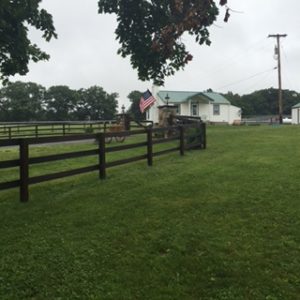Memorable Legacy or Major Obstacle In the Farmer’s Estate Plan?
Land offers both challenges and opportunities in transfer to the next generation.
by John H. Lavelle, Attorney at Law
One of the defining characteristics of farming is the presence of significant real property. This property is essential to the business, the family, and a way of life. In many ways, a farmer is exactly like the small business owner. His or her major asset is the business itself, and everything else is secondary. Unlike a small business owner, a farmer’s major asset always has a split personality. It may be the key asset of the business, but it also may represent something far more important. The farm can be a legacy that defines a family for generations.
This dual nature of the farm as principal business asset and treasured legacy is at the heart of every estate plan for a successful farmer. How the family values the business of farming compared to its legacy can greatly influence how an estate plan is constructed. Whether the plan achieves its goals depends on it matching the family’s values. This article outlines some strategies commonly used in land-centered estate plans, and how each contributes to solving the four major concerns farmers have in planning their estates.
The Four Big Issues Facing Successful Farmers
While developing a plan for the farm, every farmer needs to consider the following four big issues:
1. Estate taxes (federal and state)
2. Income taxes (current and future generations)
3. Succession plan (in or outside of the family)
4. Retirement income (for the farmer and spouse)
Certainly more issues will arise when a plan is fully developed. If the above four are handled wisely, most other issues dissipate. On the other hand, mishandle any of these four, and the best plan in the world can easily fail. Problems can be immediate or felt by the next generation. The key to success or failure is often the treatment of the land.

Farm legacy is as important as the financial considerations one must consider when planning for succession.
While most farmers do not need to concern themselves with estate taxes at the federal level, state estate taxes are still common in some northeastern states. In addition, northeast real estate values are on the rise again, and can easily push successful farmers with valuable land back into the range of estate taxes. So one can never safely ignore this issue.
Income taxes are the new estate taxes for most successful people. While estate taxes only apply to a very small percentage of taxpayers, income taxes apply to nearly everyone. And as was discussed in “Successful Farm Succession” in the Summer 2016 issue of Small Farm Quarterly (available online), income tax rates can now exceed estate tax rates. Every transfer strategy must focus on income tax effects to all involved.
The succession plan can be the most difficult of all. A big part of that is how to transfer the land in an affordable manner. “Affordable” means something to both sides. The next generation must be able to afford to acquire the land. Plus, the transferring generation must be able to afford retirement after the transfer. This one aspect can dictate much of the estate plan.
Finally, the transferring generation must have dependable retirement income as part of the overall plan. The land often figured into these senior farmers’ plans in this regard. That crucial goal cannot be ignored. If the farm is to stay in the family, however, this will require much attention.
The Toolkit for Land-Centered Estate Planning
A successful estate plan will often include several of the following strategies. Each may handle one or more of the above issues. Some are simple, many are complex. If implemented correctly, they can solve some intractable problems presented by the land. Having command of these techniques allows them to be adjusted to work for many situations. This can include: (i) farm retention and preservation; (ii) reduction in the transfer cost of farm property to younger farmers; and (iii) creation of cash flow to satisfy income needs.
Here is a quick look at some of the tools:
Reduce estate tax exposure:
Conservation Easements – lifetime income tax benefits followed by substantial estate tax reductions make this a top technique. Land values are also lowered, making family transfers more affordable.
Unbundling Values and Lifetime Gifting – a well-designed lifetime gift program can transition farms to family at highly discounted values. Proper unbundling of land values from farm business values can facilitate this and provide equity to non-farming kids. Warning: new rules are on the horizon to reduce discounting strategies, possibly as early as December of this year. If your plan involves lifetime gifting, time is of the essence.
Sale of Development Rights – like conservation easements, this permanently preserves the land, but unlike a donated easement, it trades tax benefits for actual cash payments from one or more government programs. In the meantime, land prices are lowered, allowing an easier transfer to family. In many cases, retained until death, the land has a lower value for estate tax purposes.
Manage Income Taxes:
Die Holding Appreciated Farmland – if estate taxes are not a problem, this strategy removes income tax gains for the next generation. In this situation, lifetime gifts of land can be a disadvantage.
Charitable Remainder Trust – this strategy allows the disposition of unwanted but appreciated real estate without paying any income tax up front. It can create cash flow for the sellers on favorable tax terms for one or more lives or up to 20 years. A terrific way to create retirement income from the sale of unneeded property. Couple with survivor life insurance for additional benefits.
Plan Succession of the Business:
Low Interest Rate Purchase by Children – coupled with other techniques, a sale of the farm to the next generation is particularly attractive right now. The tax law requires transactions with family to have at least minimum interest rates. Right now those rates are the lowest ever. A family sale can lock in these low rates for 30 years, giving senior farmers secure cash flow, and affordable payments for the children.
Deferred Compensation – If there is time before the senior generation wants to retire, adopting a deferred compensation plan can help with retirement income. This can take the pressure off selling the farm for cash needs. At retirement, the farm business gets tax deductions for the payments made while the retired farmers often have lower tax rates.
Unbundling – mentioned above, this is the idea of separating values from risk and structuring the business to meet the needs of the next generation of owners. For example, a farmland LLC and a farm business LLC can be created. The farmer kids acquire the farm business LLC (using any of the strategies mentioned). Non-farming kids can receive non-controlling equity in the farmland LLC, helping to treat all kids fairly. In addition, a proper structure can protect valuable assets from business claimants and lawsuits.
Create Retirement Income:
Several of the above strategies can generate significant new cash flow for retiring farmers. In addition, consider:
Maximize Social Security – absent special circumstances, it almost always makes sense to wait until age 70 to claim social security. This locks in a 32% increase for the life of the retired farmer (and spouse). With most people living longer, the 32% a year increase makes up for not taking the earlier payments very quickly, and the retired couple is quickly ahead. Hedge with term life insurance if nervous.
Reverse Mortgage – today’s programs from reputable lenders can be a very valuable strategy. Benefitting from low interest rates, this plan can provide tax-free retirement income with no obligation to repay during the retired farmers’ lives. This can buy valuable time for the next generation to get established, without forcing a sale of the farm. Although a mortgage debt is created, its repayment is potentially deferred many years. As long as it is planned for, this debt may not present a significant problem for the children. Survivor insurance could be used to repay the debt if desired.
A farmer’s land is the key to a great estate plan. Use of some of these strategies can assure that another generation of farmers can continue the legacy.
John H. Lavelle, CPA, LL.M., is a founding partner of Lavelle & Finn, LLP, Attorneys at Law, in Latham, NY and co-owner of Windhorse Thoroughbreds and Cotton Hill Farm in Middleburgh, NY. He can be reached at (518) 869-6227 or john@lavelleandfinn.com.



So much interesting article.